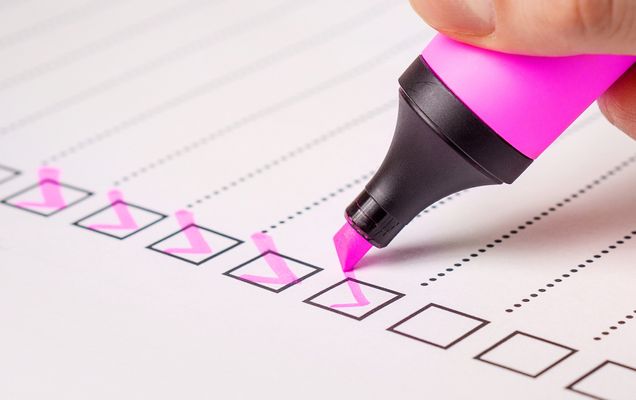2.1.8
Stages of Development
The Stages of Development
The Stages of Development
In the exam, you will be given a transcript and the age of the child. In your response, you should say what stage of development the child is in and whether that conforms to what is expected of the child. The stages are as follows:


The Holophrastic Stage
The Holophrastic Stage
- The Holophrastic Stage denotes the period of time when children speak using single words (or holophrases).
- Generally speaking, this happens between 9-18 months. The holophrases are predominately (but not always) nouns.
- The holophrases will often encompass many meanings and moods. For example, juice could mean:
- Can I have some juice? (Interrogative)
- Give me juice! (Imperative)
- There’s the juice. (declarative)


The Two-Word Stage
The Two-Word Stage
- Often confused with the Telegraphic Stage, this stage denotes utterances of two words only.
- This stage occurs between 18 and 24 months.
- Other word classes start to emerge, but nouns still dominate.
- Syntax is explored (correctly).
- Subject-verb (‘Robin jump’).
- Verb-object (‘jump dog’).
- Noun phrases (pre-mod adj + noun – ‘big dog’).
- Inflections are not applied to verbs.


Telegraphic Stage
Telegraphic Stage
- The Telegraphic Stage denotes when a child is speaking using utterances with just enough information. This word ‘telegraphic’ stems from the word ‘telegram’.
- Roughly occurs between 24 and 30 months.
- A wider range of word classes are acquired (particularly pronouns, followed by determiners and prepositions).
- For example:
- ‘Rory want food’.
- ‘This coat all wet’.


2.5-5 years
2.5-5 years
- From 2.5 years old onwards, there is rapid expansion through to 5 years old. In particular, more frequent adjectives.
- Between 3-5 years, the child enters the complex utterance stage (sometimes referred to as the Post-telegraphic Stage).
- This includes time features, contracted negatives and increasingly accurate inflections.


Negation
Negation
- Within the acquisition of language and word order, a child quickly learns to use negations.
- Between being Holophrastic and Two Word, the child starts to front negatives like ‘no like that’.
- As we approach the Telegraphic stage, the child is starting to place negatives before the main verb like ‘don’t like you’.
- Past this, negation is almost always correct and errors tend to be virtuous.
Stages of Development - David Crystal
Stages of Development - David Crystal
David Crystal states that children will have the following linguistic abilities at their disposal at these ages:


Up to 1 years old
Up to 1 years old
- 'Scribble talk’ – sounds like adult speech, but has no meaning.


1 year, 8 months old
1 year, 8 months old
- Around 50 words in their lexicon.
- Littered with reduplication and overextension.


2 years old
2 years old
- Inflections are emerging, but are insecure.
- Around 300 words known.
- Object permanence emerges. This is the understanding that objects exist even when you can't see them.


3 years old
3 years old
- Up to 10 words are being used per sentence utterance.
- Vocabulary is too big and varied to accurately estimate.
- Irregular verbs and nouns cause problems (e.g. 'run' and 'mouse').
- Parataxis (repeated use of coordinating conjunctions like ‘and’) begins to be used.
- Multiple negation/double negatives start to happen – the child does not grasp that negatives cancel each other out.
- Contractions begin to be used.
Acquisition of Grammatical Constructions
Acquisition of Grammatical Constructions
Inflectional morphemes and other grammatical features (and grammatical words) are acquired in a specific order. Brown’s research proposes that they are learned in this order:


1-6
1-6
- Present progressive (-ing) – I am walking.
- Prepositions – by, on, at...
- Simple plural (-s, -es) – he walks.
- Possessive (- ‘s) – Trudi’s boat.
- Uncontracted copula – Stuart is acting.
- Articles – the box, a dog.


7-12
7-12
- Regular past tense (-ed) – I walked.
- Third person regular verbs (-s) – Dave types.
- Third person irregular verbs – Suz teaches.
- Auxiliary verb ‘be’ – I am, he was, you are.
- Contracted copula – Stuart’s acting.
- Contracted auxiliary verb ‘be’ – I’m, you’re.


Katamba
Katamba
- Katamba argues that this order is the same regardless of parental input.
1Language Levels
1.1Assessment Objectives
1.2Lexis
1.2.1Introduction
1.2.2Common, Proper, Abstract & Concrete Nouns
1.2.3Collective Nouns
1.2.4Adjectives
1.2.5Main, Auxiliary & Copular Verbs
1.2.6Dynamic & Stative Verbs
1.2.7Transitive, Intransitive, Active & Passive Verbs
1.2.8Mood of Verbs
1.2.9Adverbs
1.2.10Personal, Possessive & Reflexive Pronouns
1.2.11Relative & Demonstrative Pronouns
1.2.12Determiners
1.2.13Conjunctions
1.2.14Synonyms, Antonyms & Phonological Features
1.2.15End of Topic Test - Lexis
1.3Grammar
1.4Semantics & Pragmatics
1.5Discourse Structure, Graphology & Orthography
2Language, The Individual & Society
2.1Children’s Language Development
2.2Children's Language Development - Theories
2.3Literacy Development: Reading
3Language Diversity & Change
3.1The Importance of Gendered Language
3.2Social Groups
3.3Occupational Groups
3.4Accents & Dialects
3.5Language Change
Jump to other topics
1Language Levels
1.1Assessment Objectives
1.2Lexis
1.2.1Introduction
1.2.2Common, Proper, Abstract & Concrete Nouns
1.2.3Collective Nouns
1.2.4Adjectives
1.2.5Main, Auxiliary & Copular Verbs
1.2.6Dynamic & Stative Verbs
1.2.7Transitive, Intransitive, Active & Passive Verbs
1.2.8Mood of Verbs
1.2.9Adverbs
1.2.10Personal, Possessive & Reflexive Pronouns
1.2.11Relative & Demonstrative Pronouns
1.2.12Determiners
1.2.13Conjunctions
1.2.14Synonyms, Antonyms & Phonological Features
1.2.15End of Topic Test - Lexis
1.3Grammar
1.4Semantics & Pragmatics
1.5Discourse Structure, Graphology & Orthography
2Language, The Individual & Society
2.1Children’s Language Development
2.2Children's Language Development - Theories
2.3Literacy Development: Reading
3Language Diversity & Change
3.1The Importance of Gendered Language
3.2Social Groups
3.3Occupational Groups
3.4Accents & Dialects
3.5Language Change
Unlock your full potential with Seneca Premium
Unlimited access to 10,000+ open-ended exam questions
Mini-mock exams based on your study history
Unlock 800+ premium courses & e-books